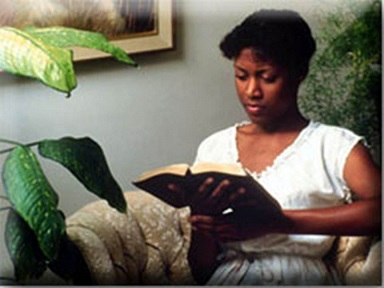
The Disciples and the Sabbath

Samuel Smith
23 Jan'19
5
LESSON 4
THE DISCIPLES AND THE SABBATH
You are welcome to another edition of Insights from God's Word, a Bible study programme that is committed to sharing God's Word by allowing the Bible to speak for itself.In this edition, we continue with our series on The Sabbath Question. The topic for this study is: The Disciples and the Sabbath. In this study, I will want us to consider the attitude of the disciples in relation to the Sabbath after Christ had ascended to heaven.
From our previous study, we noted that if there was any group of people who had the right to disregard the Seventh-day Sabbath because Christ had given them a new commandment to make them do so, it certainly should have been the disciples of our Lord. However, we found out that immediately after the death of Christ, the women who had followed after Him from Jerusalem kept the Seventh-day Sabbath according to the commandment (see
Beloved, before Christ ascended to heaven, He gave the disciples the commission to proclaim the gospel to the entire world (see
1) PAUL AND SILAS KEPT THE SABBATH IN THESSALONICA
As we follow the story of the early disciples of Jesus, one fact we cannot overlook is how they kept on keeping the Seventh-day Sabbath. Contrary to popular opinion, even the apostle Paul kept the Seventh-day Sabbath on his missionary journeys in various Gentile lands. Friends, even as Christ had a custom of attending church every Sabbath (see17:2 AND PAUL, AS HIS MANNER WAS, went in unto them, and three Sabbath days reasoned with them out of the scriptures"
17:3 Opening and alleging, that Christ must needs have suffered, and risen again from the dead; and that this Jesus, whom I preach unto you, is Christ.
17:4 And some of them believed, and consorted with Paul and Silas; and of the devout Greeks a great multitude, and of the chief women not a few."
(
2) PAUL AND BARNABAS KEPT THE SABBATH AT ANTIOCH IN PISIDIA
As an apostle to the Gentiles, Paul travelled extensively in various Gentile lands, opening unto them the mystery of salvation for mankind through Jesus Christ. From13:43 Now when the congregation was broken up, many of the Jews and religious proselytes followed Paul and Barnabas: who, speaking to them, persuaded them to continue in the grace of God.
13:44 And the next sabbath day came almost the whole city together to hear the word of God."
(
3) PAUL KEPT THE SABBATH IN CORINTH
Friends, Thessalonica and Antioch were not the only places where the apostle Paul kept the Sabbath. In the city of Corinth, we learn how the apostle Paul "reasoned in the synagogue every sabbath, and persuaded the Jews and the Greeks" (4) PAUL, SILAS, TIMOTHY AND LUKE KEPT THE SABBATH IN PHILIPPI
Despite the various evidences from Scripture in relation to how the Sabbath was clearly honoured by both Jews and Gentiles after Christ, many in Christendom will still want to further arguments to the contrary. One point that is often raised by such people is that the Gentiles as well as Paul and his companions had no option but to join the Jews for worship on the Sabbath, as the Sabbath day was the Jews’ customary day of worship. But friends, a closer look at the book of Acts proves otherwise. In16:12 And from thence to Philippi, which is the chief city of that part of Macedonia, and a colony: and we were in that city abiding certain days.
16:13 And on the sabbath we went out of the city by a river side, where prayer was wont to be made; and we sat down, and spake unto the women which resorted thither."
(
Beloved, from the scriptural passages we have reviewed so far in this study, it is clear that the Disciples of Christ continued to keep the Sabbath even after their Lord's ascension. This practice of the disciples was in conformity with the example of Christ (see
Exhortation: "The Son of man is also Lord of the Sabbath" (
In our next study, we will consider the topic: "Let no man therefore judge you ...": an exposition on Paul's words in Colossians 2:16. The Bible Study references for this study are
Stay blessed and keep shining for King Jesus.
Maranatha!
Powered by White Throne Ministries















